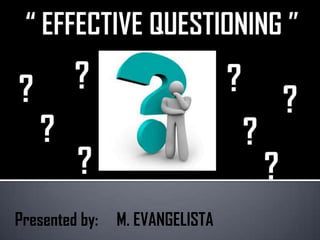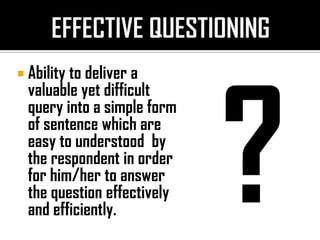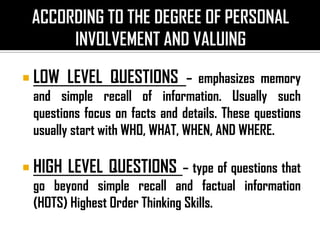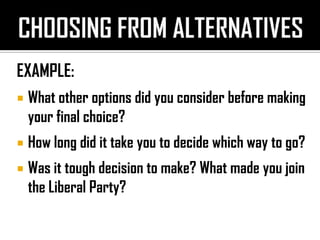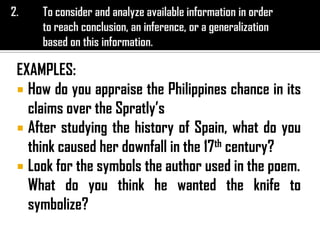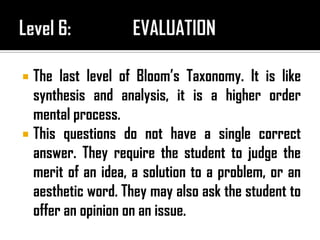The document discusses effective questioning techniques for eliciting student responses and engagement. It covers:
- The importance of questioning in the learning process.
- Types of questions including low-level recall questions, high-level thinking questions, convergent vs divergent questions.
- Bloom's Taxonomy of questioning which progresses from lower to higher order thinking.
- Examples are provided of different levels of questions.
